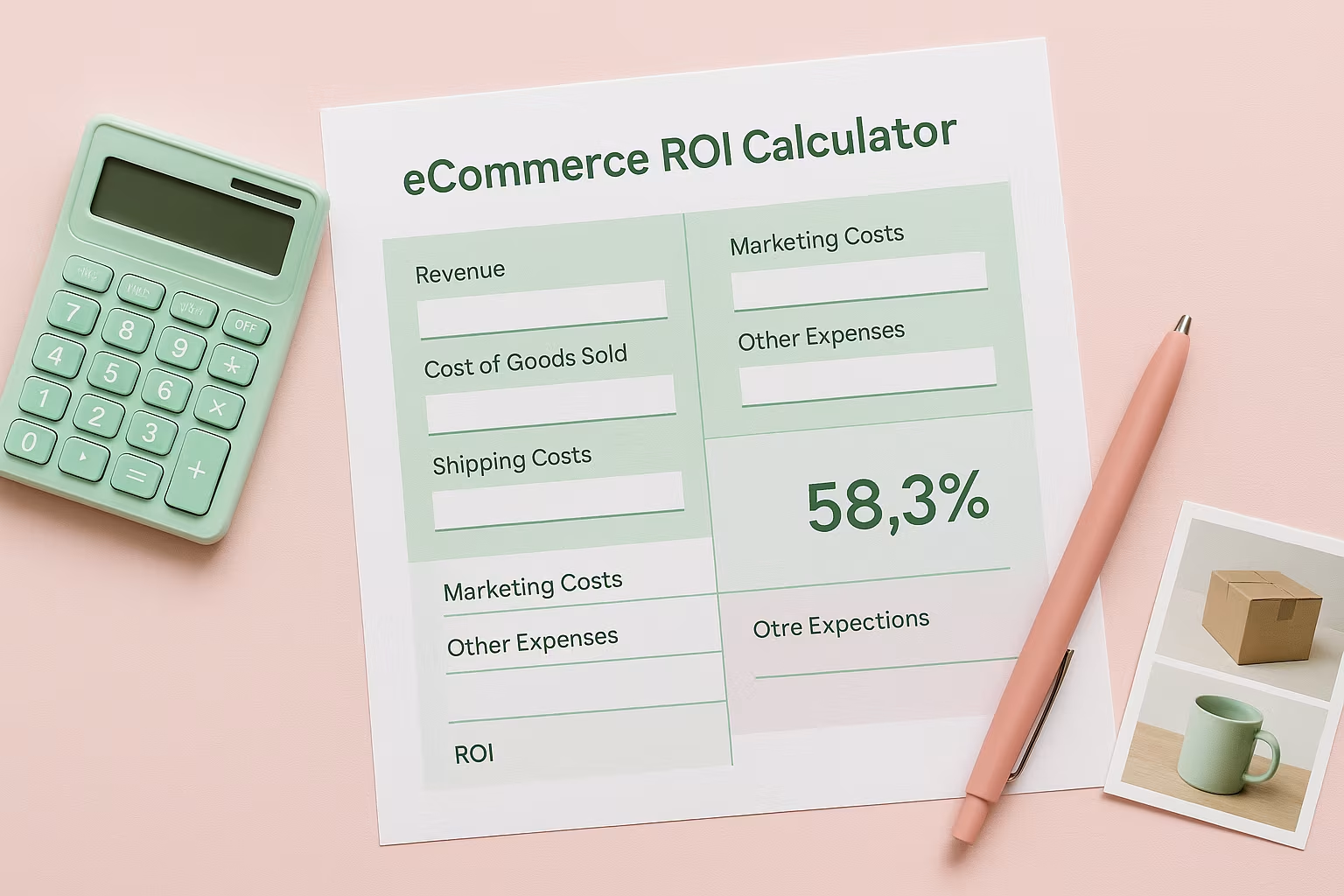What Are the Most Profitable Hair Care Products to Sell: Market Winners
%20(1).avif)
Industry data shows that top-performing hair care products can earn 70–85% margins, far above the 42% average. This profit gap comes from smart product selection aligned with consumer trends and psychology.
If you're wondering what are the most profitable hair care products to sell, the answer lies in high-demand categories like targeted treatments and premium daily essentials.
These products pair necessity with strong branding and proven results—key to building a thriving beauty business.
List of the Most Profitable Hair Care Products to Sell in Today's Market
The hair care industry is projected to reach $112.5 billion globally by 2028, with several particularly profitable segments emerging. Here are the top performers that consistently deliver strong returns:
1. Hair Growth Serums and Treatments
Hair loss affects millions across all demographics, creating a large, motivated customer base willing to pay premium prices for effective solutions.
Why they're profitable:
- High perceived value allows for markups of 200-300%
- Production costs can be relatively low (often $3-5 per unit)
- Strong repeat purchase patterns
- Customer loyalty once results are achieved
Popular ingredients include peptides, caffeine, biotin, and natural extracts like rosemary and peppermint oil. These products typically retail between $25-80 but cost significantly less to produce.
2. Bond Repair and Strengthening Products
Following the massive success of Olaplex, bond-building technology has created an entirely new premium hair care category.
Why they're profitable:
- Technical formulations justify higher price points
- Appeals to both damaged hair sufferers and preventative users
- Professional salon endorsement drives consumer confidence
- Limited competition compared to standard shampoos
These products typically sell for $28-60 while costing $4-8 to manufacture, yielding margins of 80-85%.
3. Customized Hair Care Systems
Personalized hair care regimens that address specific hair types and concerns have seen explosive growth.
Why they're profitable:
- Premium positioning allows for higher pricing
- Quiz-based customization creates engagement
- Higher average order values with system purchases
- Greater customer retention through personalization
Custom systems typically generate 70-80% margins and encourage bundle purchases rather than single-item sales.
4. Clean and Sustainable Hair Products
The clean beauty movement has transformed consumer expectations, with sustainable and natural hair care products commanding premium prices.
Why they're profitable:
- Eco-conscious consumers will pay 20-30% more
- Brand story and mission drive emotional connection
- Lower marketing costs through organic social sharing
- Growing mainstream demand beyond niche markets
5. Specialty Scalp Care Products
Scalp-focused treatments have emerged as a lucrative subcategory that bridges skin and hair care.
Why they're profitable:
- Growing awareness of scalp health
- Skincare-level pricing (typically 2-3x traditional hair care)
- Higher perceived expertise and efficacy
- Expanding from treatment into prevention markets
These products commonly achieve profit margins of 75-85% with average retail prices of $30-50.
Key Characteristics of Profitable Hair Care Products

Certain attributes consistently appear across the most profitable hair care offerings, regardless of specific category:
Proprietary Formulations
Products with unique ingredient combinations or proprietary technologies command higher prices and resist direct comparison shopping.
Even without a massive R&D budget, working with specialized manufacturers can create exclusive formulations that feature less common botanicals or delivery systems not widely available to competitors.
Focus on Specific Hair Concerns
Targeted products that solve particular hair issues (frizz, thinning, breakage) consistently outperform general-purpose products in profit margin.
Premium Packaging
Invest in distinctive, premium packaging that elevates perceived value -- studies show consumers will pay 15-30% more for identical formulas in luxury packaging.
Educational Marketing Components
Products that require demonstration, explanation, or technique create natural content opportunities and justification for premium pricing.
The Seasonality Secret of High-Margin Hair Care Products
What many entrepreneurs don't realize is that the highest-profit hair care products display fascinating seasonal purchasing patterns that can be strategically leveraged.
While most beauty categories follow predictable holiday-driven cycles, profitable hair care products operate on a different calendar entirely.
Industry data reveals several counterintuitive timing opportunities:
- Late January/February: Post-holiday hair damage recovery creates a 42% spike in bond repair product sales
- Early Spring (March-April): Hair growth product sales surge 37% as consumers prepare for summer looks
- August/September: Back-to-school drives a 28% increase in styling product sales
- October: Pre-holiday scalp treatments see unexpected 31% sales increase as consumers prepare for winter conditions
Smart hair care entrepreneurs plan their product launches and promotions around these less obvious seasonal windows, creating an opportunity to capture market share when competition for consumer attention is lower than during traditional holiday peaks.

Starting Your Hair Care Business: Essential Steps
Successfully launching profitable hair care products requires methodical planning and execution:
1. Market Research and Niche Selection
Begin by identifying specific market segments with strong demand but manageable competition. Look for:
- Underserved hair types or concerns
- Emerging ingredients with scientific backing
- Gaps in existing brand positioning
Thorough competitive research will reveal pricing thresholds and profit potential. Tools like Jungle Scout and Helium 10 can help analyze competitor sales volume and pricing strategies.
2. Product Development and Sourcing
Two primary approaches exist for creating your hair care line:
Private Labeling
Working with established manufacturers who create products to your specifications with your branding. This approach offers:
- Lower minimum order quantities (typically 100-300 units)
- Faster time to market (60-90 days typical)
- Reduced formulation costs
- Greater flexibility for small businesses
Custom Formulation
Developing proprietary formulations with cosmetic chemists for unique offerings. This approach offers:
- Complete product differentiation
- Intellectual property potential
- Higher barriers to entry for competitors
- Greater control over ingredients and efficacy
Both approaches can be profitable, but private labeling typically allows faster market entry with lower initial investment.
3. Branding and Positioning
The most profitable hair care products combine compelling formulations with strategic positioning:
- Develop a clear brand identity that resonates with your target market
- Create distinctive visual assets and packaging
- Establish expert-level content marketing
- Build aspirational yet accessible brand personalities
4. Pricing Strategy
Successful hair care brands typically employ one of three pricing approaches:
- Premium/Luxury: Positioned at the top of the market with exceptional packaging, ingredients, and brand experience.
- Masstige: Offering near-luxury quality and experience at more accessible price points.
- Value-Luxury: Focusing on 1-2 hero products at premium prices while offering accessory products at more approachable price points.
For maximum profitability, aim for a minimum 70% gross margin structure, allowing for:
- 30% product cost
- 30% marketing and customer acquisition
- 10% operations and fulfillment
- 30% profit
Distribution Channels for Maximum Profitability
Where you sell your hair care products significantly impacts profitability:
Direct-to-Consumer (DTC) Website
- Highest profit margins (no intermediary fees)
- Complete control of customer experience
- Valuable first-party customer data
- Ability to create subscription models
Amazon and Online Marketplaces
- Immediate access to a massive customer base
- Lower customer acquisition costs
- Established trust and purchasing framework
- Potential for viral growth through reviews
Specialty Beauty Retailers
- Brand credibility through association
- Access to beauty-focused shoppers
- Professional recommendation potential
- Expanded physical presence
The most profitable strategy often combines direct sales with strategic marketplace and retail partnerships.
Scaling Your Hair Care Business
Once you've established your initial product line, consider these approaches to maximize profitability:
Product Line Expansion
Develop complementary products that increase average order value and lifetime customer value:
- Complete regimens (shampoo, conditioner, treatment)
- Specialty tools and accessories
- Limited edition seasonal offerings
Subscription Models
Recurring revenue dramatically increases customer lifetime value and provides predictable cash flow:
- Auto-replenishment programs
- VIP membership benefits
- Product discovery subscriptions
International Expansion
Different markets often have varying levels of competition and price sensitivity:
- Europe typically supports higher price points for clean formulations
- Asian markets value innovative delivery systems
- Middle Eastern markets prioritize premium ingredients and packaging
Common Pitfalls to Avoid
Even with profitable products, these common mistakes can undermine success:
Underestimating Marketing Requirements
Hair care is a particularly visual and demonstration-dependent category requiring consistent content creation and advertising.
Inadequate Testing and Validation
Product efficacy and stability testing is essential to prevent costly reformulations and reputation damage.
Neglecting Customer Education
The most profitable hair care products often require specific usage techniques to maximize results and satisfaction.
Building Your Hair Care Brand for Long-Term Success
The most profitable hair care businesses don't just sell products—they create ongoing customer relationships and brand equity.
Create a Community Around Your Brand
Building engaged followers transforms customers into advocates:
- Hair transformation showcases
- Stylist partnerships and education
- User-generated content campaigns
Emphasize Education and Expertise
Position your brand as a trusted authority:
- Develop detailed content explaining hair science
- Partner with trichologists or dermatologists
- Create comprehensive tutorials and guides
Focus on Sustainability
Increasingly, profitable hair care brands incorporate environmental responsibility:
- Sustainable packaging innovations
- Ethical ingredient sourcing
- Waste reduction initiatives
Professionals’ Secret: The "First Impressions" Pricing Phenomenon
Something few beauty entrepreneurs understand is what industry insiders call the "First Impressions Pricing Phenomenon" - a psychological pricing strategy that can increase hair care product profitability by 22-38% without any formulation changes.
Here's how it works: Consumer research shows that a customer's first purchase price with your brand becomes their mental "anchor" for all future purchases. This creates a unique opportunity during your initial product launch:
- Start with a premium-priced, high-value hero product (like a specialized treatment)
- Price it at the upper threshold your market will bear
- Ensure an extraordinary packaging and unboxing experience
- Include unexpected value-adds (application tools, bonus samples)
- Create limited availability to enhance perceived value
Launching with a premium-priced hero product sets a high-value expectation for your brand.
This makes it easier to introduce complementary items at similar price points later. Top brands use this approach, supported by a strong origin story, to justify pricing and build lasting customer trust.
The Real Path to a Profitable Hair Care Brand
The hair care market offers profitable opportunities for entrepreneurs who combine quality formulations with strategic positioning, focusing on customer needs and strong brand experiences.
Profitability in hair care comes from offering genuine value through specialized treatments, customized systems, or clean formulations. With the right approach, your brand can thrive.
Ready to start your hair care brand without the complexity of manufacturing? Explore top hair care products to launch your brand with minimal investment and maximum profit potential.
Curious how industry insiders are launching successful hair care lines without massive upfront investments? Reach out to Supliful's product development team to see how our turnkey formulation and fulfillment services can transform your hair care concept into a premium brand that's ready to capture market share.
FAQ
Related blogs

Price Elasticity Of Demand Calculator: Predict Revenue Impact in Seconds

Chargeback ROI Calculator: Predict Your Savings and ROI in Under 10 Seconds

Break-Even ROAS Calculator: Find Out What You Can Afford to Spend on Ads


